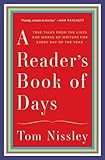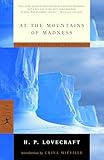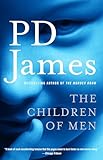
 What really begins in January, besides the calendar? Winter isn’t even close to ending, and nothing but the new year is being born. But we do, nevertheless, like to start things when the year starts. Maybe it’s that the quiet hibernation of the time, after the excess of the holidays, gives us the chance to reflect and resolve. Maybe, for those who believe, it’s that our “decayed world,” as Edmund Spenser introduced his Shepheardes Calender, has recently been refreshed by the birth of Christ. Or maybe it’s just the arbitrary placebo effect of a change of digit and a clear new calendar page. What will you resolve to read in January? A new diet book? Will you try, once again, to finish Getting Things Done? Or will this be the year you’ll read Proust, or Infinite Jest, or A Dance to the Music of Time? Or, might I humbly suggest, you could commence the healthful daily practice of reading a literary almanac.
What really begins in January, besides the calendar? Winter isn’t even close to ending, and nothing but the new year is being born. But we do, nevertheless, like to start things when the year starts. Maybe it’s that the quiet hibernation of the time, after the excess of the holidays, gives us the chance to reflect and resolve. Maybe, for those who believe, it’s that our “decayed world,” as Edmund Spenser introduced his Shepheardes Calender, has recently been refreshed by the birth of Christ. Or maybe it’s just the arbitrary placebo effect of a change of digit and a clear new calendar page. What will you resolve to read in January? A new diet book? Will you try, once again, to finish Getting Things Done? Or will this be the year you’ll read Proust, or Infinite Jest, or A Dance to the Music of Time? Or, might I humbly suggest, you could commence the healthful daily practice of reading a literary almanac.

 In the 366 daily pages of A Reader’s Book of Days, I tell a thousand or two tales from the real lives of writers, as well as the lives they’ve invented. I also sum up each month with a short essay and a list of recommended reading, and that, I found, was the hardest part. Not that there wasn’t enough to say. Quite the opposite: there was too much. Talk about arbitrary! No 400 words or short stack of books could fully represent a 12th of the literary year. So it’s with a sense of incompletion that I offer my nine recommendations here for January, books and poems that begin, or hinge, or are contained in the year’s first month. Aside from almanacs like mine, surprisingly few books actually start in January, by the way; one of those that does may be the most appropriate January book of them all, though it’s not included below: Bridget Jones’s Diary, which opens the year not with hope but a hangover.
In the 366 daily pages of A Reader’s Book of Days, I tell a thousand or two tales from the real lives of writers, as well as the lives they’ve invented. I also sum up each month with a short essay and a list of recommended reading, and that, I found, was the hardest part. Not that there wasn’t enough to say. Quite the opposite: there was too much. Talk about arbitrary! No 400 words or short stack of books could fully represent a 12th of the literary year. So it’s with a sense of incompletion that I offer my nine recommendations here for January, books and poems that begin, or hinge, or are contained in the year’s first month. Aside from almanacs like mine, surprisingly few books actually start in January, by the way; one of those that does may be the most appropriate January book of them all, though it’s not included below: Bridget Jones’s Diary, which opens the year not with hope but a hangover.

 A Calendar of Wisdom by Leo Tolstoy (1909)
A Calendar of Wisdom by Leo Tolstoy (1909)
What did Tolstoy, in his last years, believe was the great work of his life? War and Peace? Anna Karenina? No, this anthology he spent 15 years gathering, which mixed his own aphorisms with those of the “best and wisest thinkers of the world,” organized by a theme for each day of the year.
At the Mountains of Madness by H. P. Lovecraft (1936)
As the southern summer opens up the South Pole for exploration, a scientific expedition led by professors Dyer and Lake discovers behind a range of unknown Antarctic mountains a vast, dead, and ancient city, one of the most evil and benighted of Lovecraft’s inhuman horrors.
“New Year Letter” by W. H. Auden (1940)
With hatreds convulsing the world “like a baffling crime,” Auden composed one of his great long poems as a letter to “dear friend Elizabeth,” whose hospitality in his adopted home of New York helped him toward this vision of order in art and life during a time of tyranny.

 Do Androids Dream of Electric Sheep? by Philip K. Dick (1968)
Do Androids Dream of Electric Sheep? by Philip K. Dick (1968)
You are far more likely to know Blade Runner than its source novel, set on a single January day in a post-nuclear 1992, which features, rather than Ridley Scott’s neon glamor, Dick’s equally thrilling and disturbing brand of stripped-down noir.
Airport by Arthur Hailey (1968)
Arthur Hailey wrote blockbusters like no one else, earnest and fact-filled dramas set in a series of massive industrial monoliths: banks, hotels, power plants, and, in this case, Lincoln International Airport in Illinois, during the worst winter storm of the decade, with one jetliner stuck at the end of a runway and another coming in fast with a bomb on board.
“In California: Morning, Evening, Late January” by Denise Levertov (1989)
Levertov’s pastoral is unseasonal in the temperate lushness of its California winter, and unsettling in its vision of the industrial forces invading and managing its beauty.

 The Children of Men by P.D. James (1992)
The Children of Men by P.D. James (1992)
Another novel overshadowed by its movie adaptation, The Children of Men, in a startling departure from James’s Adam Dalgliesh mysteries, uses the premise of a world in which human fertility has disappeared to examine the nature and lure of power.
White Teeth by Zadie Smith (2000)
Smith’s debut, which begins with Archie Jones’s failed January suicide, has too much life to begin with a death: it overflows with not only the variety of multi-ethnic London but the exuberance of Smith taking her brilliant talent for its first walk out on the stage.
 The Omnivore’s Dilemma by Michael Pollan (2006)
The Omnivore’s Dilemma by Michael Pollan (2006)
One of the omnivore’s dilemmas is how to navigate a world whose technology and global trade have accustomed even New Englanders to unseasonal luxuries like sweet corn and asparagus in the middle of January.








